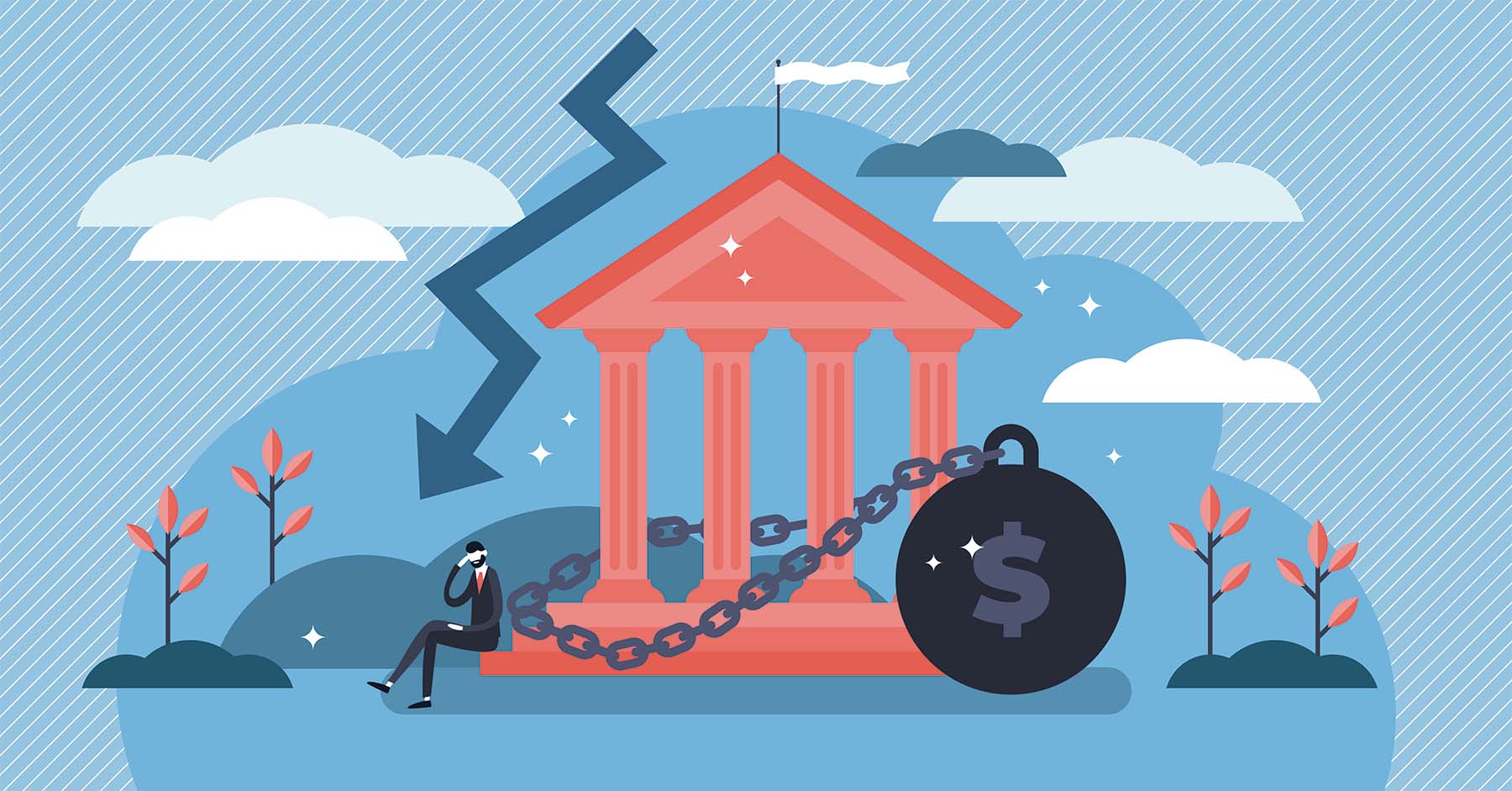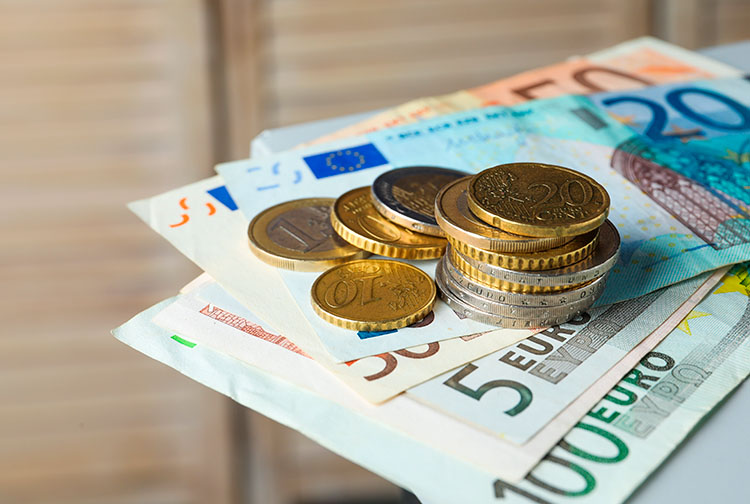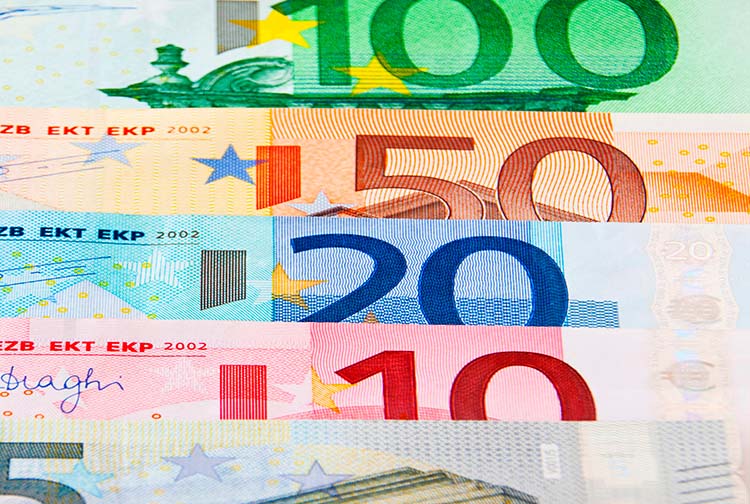

What is public debt, and why is it important?
In the same way that we take out loans and other financing mechanisms when the money we earn is not enough to cover our household expenses, it is common for a State to borrow money when its income is insufficient to meet its budgetary needs. We explain where this financing comes from and the consequences of high public debt.
Public debt or sovereign debt is the total money owed by all the public administrations of a State to private investors or other countries, while the negative balance that gives rise to the need for financing is known as the public deficit. It is a form of financing that allows a country to raise immediate revenue when tax revenues are not sufficient to cover its budgetary needs and to repay it gradually over time.
Although the figures may be surprising, sovereign debt in itself is neither good nor bad. Countries can require financing for public investment to stimulate economic growth, without suffering the consequences of raising taxes or issuing more of their own currency.
That said, borrowing to make an investment that will generate value for the economy is not the same as borrowing to cover uncontrolled spending. Likewise, there are countries that are able to afford high levels of debt because the financial markets have confidence in their ability to pay, thanks to the stability of their economies or their national currency.
Financing through public debt securities
Depending on the financing needs of each country, there are different models for issuing public debt securities. The repayment term of the loan, short, medium or long term, and the various ways of earning interest determine the main differences.
Treasury bills have the shortest repayment term of 3, 6, 12 and up to 18 months and therefore offer a lower interest rate than Government Bonds, with a term of between two and five years, which also distribute coupons to investors, which are collected on a regular basis.
Finally, governments can issue long-dated Government Bonds with maturities of up to 30 years, designed for long-term investors seeking a higher interest return. Precisely because these are assets with such a long maturity period where the interest rate does not depend so much on the monetary policy of the country’s central bank, but on structural factors of the economy, they are a good barometer of the degree of investor confidence in the future economic stability of a state.
Budget imbalances and runaway public indebtedness
Expansionary public investment policies in the wake of the economic stagnation caused by the health crisis have pushed the sovereign debt of many countries to historic highs. Economists and international organisations are concerned about the high level of global public debt, which may end up being unsustainable for developing economies.
In other words, debt is a necessary instrument for growth, as long as it is sustainable, but the reality is that public debt figures in the world have risen considerably in recent years, approaching those of global GDP, and are therefore far from this sustainability. Spain’s public debt continues to set historical records, the latest being last August when it reached a figure of 1.49 trillion euros after rising by 4.44 billion.
Data published by the Bank of Spain on Friday 21 October in its latest economic report showed that in the last 12 months the debt has increased by a further 72,029 million euros. Eurostat also said that eurozone debt in the second quarter also reached a record high of 12.1 trillion euros. How do you pay for all this?
Some analysts say that public debt is never really paid off, i.e. it is never reduced in absolute terms because it is always being rolled over. Even when a state goes bankrupt, as happened with Greece in 2008, the conditions are renegotiated and new debt is issued. In practice, however, we are all paying for it, unequally. As happened in Greece, those who have the least pay the most, those who keep cash in their pockets or current accounts, see their money lose more and more of its value.
If you want to discover the best option to protect your savings, enter Preciosos 11Onze. We will help you buy at the best price the safe-haven asset par excellence: physical gold.





Molt agraït pel contingut que oferiu enhorabona nois seguim avançant per fer l’entitat catalana de futur.
El nostre agraïment a tu per apreciar-ho, Cristian!
👌
Gràcies, Daniela!!!
Gràcies!
Gràcies a tu, Joan!!!
Interessant.
Celebrem que li hagis trobat i que t’hagi agradat, Pere. Moltes gràcies pel teu comentari!!!
Excel·lent informació el que es diu “Estira més el braç que la maniga”i acaben pagant com sempre els de sempre
Com sempre. Moltes gràcies pel teu comentari, Alícia!!!
El que se`n diu posar-se la corda al coll, fer un crèdit per pagar un altre crèdit. No pot pas acabar bé. La diferència entre que ho faci un particular i una empresa o bé els polítics de torn és que aquests no acaben pagant-ho de la seva butxaca; a tot estirar, hauran de plegar i sempre tindran una altra feina assegurada.
Tota la raó del món, Mercè, així és aquest país… Moltes gràcies pel teu comentari!!!
Excel·lent 👌🏿
👍
Gràcies per la documentació👏👏👏👏👏👍
Gràcies a tu per seguir-nos i pel teu comentari, Jordi!!!